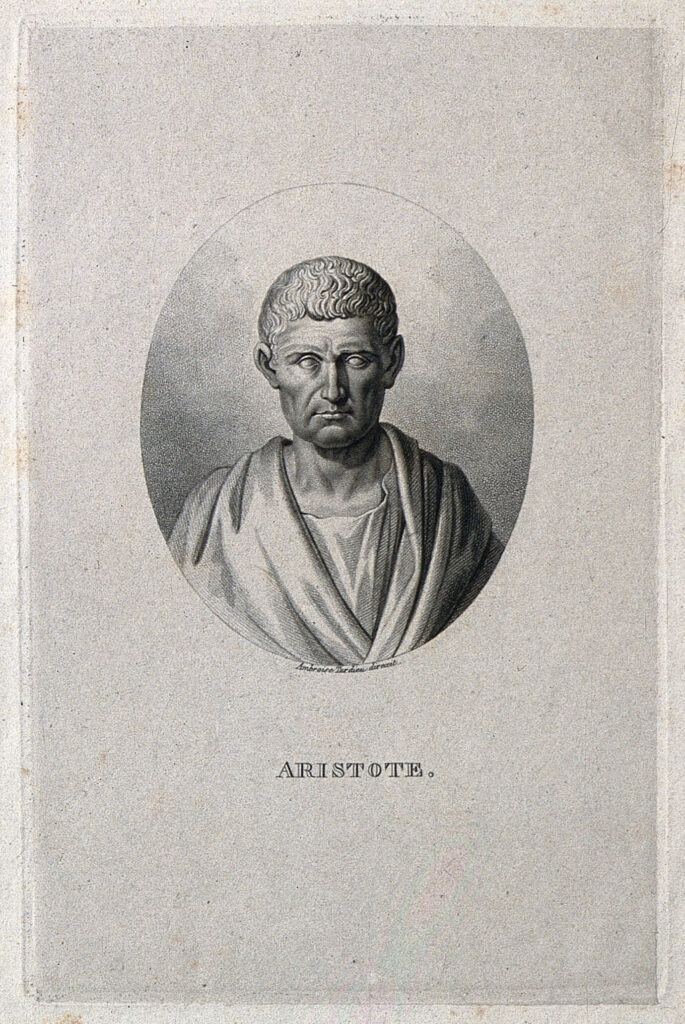By: Isaac Dillard
I was once asked if I could eat lunch with anyone throughout history who would it be? I love this question because it allows me to think deeply about different historical figures and weigh them against what I would like to learn at this point. My go-to answer to this question is always Stan Lee (He created Spider-Man, need I say more) but if the king himself is off the table I’d have to pick one of the most influential figures in Greek history, Aristotle.
You may be asking, “Isaac why Aristotle, I’m more of a Plato fan myself,” and to that I would say Plato is great, but Aristotle is the father of one of the greatest lost arts of our day, rhetoric. According to Webster’s dictionary rhetoric is defined as “the art of speaking or writing effectively.” Unfortunately, a majority of Gen Z has not been taught this ancient art.

Original public domain image from Wellcome Collection
All over my social media, I see Gen-Z propose empty arguments that are loud, but ineffective. In the divisive day that we live, college-aged individuals can expect to be challenged on their views no matter what side of the aisle they fall on, therefore, to become an effective member of society we must learn how to offer our arguments effectively.
The first step in developing rhetoric is to understand its foundation. Aristotle proposed that there are three foundational aspects of rhetoric, logos, ethos, and pathos. Logos deals with the logic of your argument, ethos covers your credibility as a speaker, and pathos handles the emotion that resides within your argument. Understanding these three key foundational pieces of rhetoric will help you recognize your strengths and weaknesses as a speaker or writer.
The second step in sharpening your rhetorical skills is to study the greats. Read great writers, watch legendary speeches, and recognize the elements they add to their presentations. A suggestion I have for all my peers is to listen to arguments from both sides of the aisle. It’s almost impossible to develop a strong argument without knowledge of counterarguments against your stance. Consuming media from different perspectives gives you depth as a person, which in turn adds depth to your argument.
Lastly, to become a great practitioner of rhetoric, you must practice rhetoric. Michael Jordan didn’t become the G.O.A.T. by thinking about basketball. He became great because he was in the gym practicing every day. The same can be said about legendary rhetoricians. They are always writing or speaking. They continue to grow in their knowledge and refine their arguments, in the pursuit of being the greatest that they can be.
Gen Z has an amazing opportunity to rise and create change through our spoken and written words. Change will not happen through shouting matches and empty arguments. Change will happen through consistent practice and refinement of a lost art that can easily be found.
